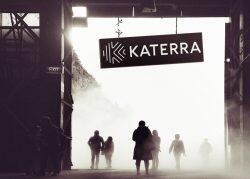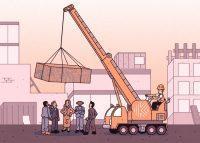While Katerra floundered, its executives diverted the firm’s business to their other companies and used its funds for private jet rides and basketball games, according to a new lawsuit.
The lawsuit, filed by Katerra and some of its creditors, accuses ousted CEO Michael Marks and others of “self-dealing and self-interested transactions.” The complaint points to Katerra building apartments for the Wolff Company at a low cost. Wolff was owned by Paxion Capital, a firm run by Katerra co-founders Marks, Jim Davidson and Fritz Wolff. Marks also allegedly “rubber-stamped” acquisitions of companies that benefited him or other executives, who in some cases owned stakes in the firms being acquired.
The complaint also accuses executives of using company money for personal perks, including a private box at Golden State Warriors games and rides on a private jet. In one case, the company paid $12,500 each month to lease a house for one of its senior executives, according to the lawsuit.
A spokesperson for Marks told The Information that the lawsuit contains several inaccuracies and that the former CEO is “confident in our case against these meritless claims — demonstrating that Michael always acted in the best interest of the company and left the company in July 2020 with a clear plan for success.” The Information first reported the lawsuit.
The Real Deal previously highlighted some of the founders’ business arrangements, including those involving Paxion and investment fund Kandle, and how they potentially raised conflict of interest concerns akin to those that ensnared another SoftBank-backed company, WeWork.
Katerra filed for bankruptcy last year, following a meteoric rise fueled in part by nearly $2 billion from SoftBank. The company launched in 2015, billing itself as a tech-first construction management firm. It opened its own factories to manufacture innovative building materials — such as cross-laminated timber and modular building components — and rapidly acquired more than 20 other companies.
But the firm was plagued by cost overruns, allegations of construction defects, factory closures and changes in leadership. Despite repeated public assurances from executives that profitability was around the corner, Katerra hemorrhaged capital and filed for Chapter 11 protection in June 2021.
Read more


[The Information] — Kathryn Brenzel
